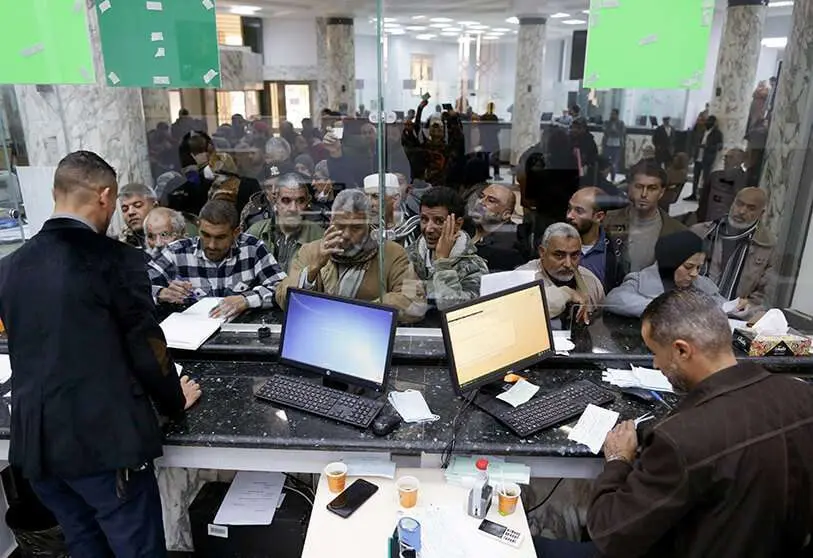Libya: USD 200 billion for reconstruction

Libya is experiencing a period of relative peace. The fratricidal wars that divided the North African nation over the last 10 years seem to have given way to a momentary truce, but the consequences of the conflict continue to take their toll on a country that is moving slowly towards an effective political transition. The bill is estimated at 200 billion dollars, a sum estimated by the World Bank in collaboration with local institutions so that Libya can implement reconstruction projects.
This was revealed by the interim finance minister, Mohamed al-Hawij, in an interview with the Alhurra television channel. In order to attract foreign capital, the Government of National Accord has held a series of meetings in recent months with businessmen from Egypt, Italy, Turkey, Tunisia, Algeria and France. Minister Al-Hawij also made official the energy partnership with the United States to boost Libyan crude oil production to three million barrels per day over the next three years.

Libya pumps 1.3 million barrels per day. A figure that, according to the governor of the OPEC Central Bank, needs to increase if the country is to pay for reconstruction plans. To do so, the authorities need to renovate the old and rusting infrastructure and guarantee political stability, two challenges that currently seem complicated. The Libyans have a trump card in their favour, as the country is home to the largest proven oil reserves in Africa, although its economy is entirely dependent on 'black gold' and gas.
With the aim of advancing on the road to recovery, the heads of Economy and Industry and Minerals, Al-Hawij himself and Ahmed Abu Hessa, signed a document together with the president of the Arab Organisation for Industrialisation (AOI), Abdel Moneim al-Taras, during the latest visit to Cairo by the interim prime minister, Abdul Hamid Dbeibé. The terms of the agreement will facilitate the reopening of Libya's factories, which have been suspended due to the conflict.

The understanding between Tripoli and Cairo does not end there. Acting Labour Minister Ali Al-Abed also announced that Libya is ready to receive the one million Egyptian workers under contracts signed between the two countries worth 19 million dinars, about 2 million euros. The North African country needs labour, according to the minister, and workers arriving in the country will be provided with medical and social insurance, and will link their pension in Libya and their continuation in Egypt if they decide to return home. In addition, they will be able to "bring their families with them to make transfers from the country", he added.
Libya's fragmentation broke down institutions. All of them ended up multiplying, one for the eastern part of the country, controlled by the Government of National Unity, and another for the west, led by the Tobruk government. As a result, Libya now has a Central Bank split in half. One in Tripoli and one in Benghazi. Although the international community laid the foundations for reunification, the two sides continue the division in a climate of mutual distrust.

The reunification of the two factions of the administration is a key pillar for economic recovery. The governor of the internationally recognised Central Bank of Libya in the capital and the head of the parallel body based in the east agreed last week on the appointment of technical teams to rebuild the top economic institution. However, the only peso achievement so far came in December, and that was the agreement on a new unified exchange rate involving the devaluation of the currency.
The United Nations Support Mission in Libya (UNSMIL) warned last week that a cohesive central bank would "improve the economy, increase foreign investment and bring prosperity to the Libyan people". However, the resolution of the conflict remains in its early stages, sabotaged by infighting and power ambitions, while Libyans face a range of difficulties in carrying out even the most basic financial transactions.

The challenge of raising $200 billion requires political stability. A requirement that Libya does not have. The task of the acting prime minister, Abdul Hamid Dbeibé, is to unify the institutions and put public services in place, two challenges that still elude him. His main task, however, is to lay the foundations for the elections to be held on 24 December, when Libya will elect the cabinet responsible for the final recovery.
So far, the Libyan parliament has been a headache for the prime minister. The lower house has flatly rejected his budget proposals as the various institutions created during the years of conflict jostled for quotas of power. In this regard, the High Council of State on Sunday approved a controversial 63-point basis for choosing representatives in the upcoming elections.

Candidates for parliament and senate must be Muslim, over 40 years of age and have Libyan nationality. The country's next president must therefore be a Libyan Muslim of Muslim parents and have no foreign citizenship. Nor must he or she be married to a non-Libyan citizen or have a criminal record. These prerogatives disqualify General Khalifa Haftar, the de facto leader of the eastern authorities.
In this scenario, the head of the Libyan Presidential Council, Mohamed Menfi, is in New York to participate in the 76th session of the United Nations General Assembly, an event where he will give a speech and which will serve to debate the situation in the North African country. In addition, his trip will be extended by a week to hold a series of meetings on the margins of the Assembly with international representatives involved in the Libyan crisis or with interests on the ground.








